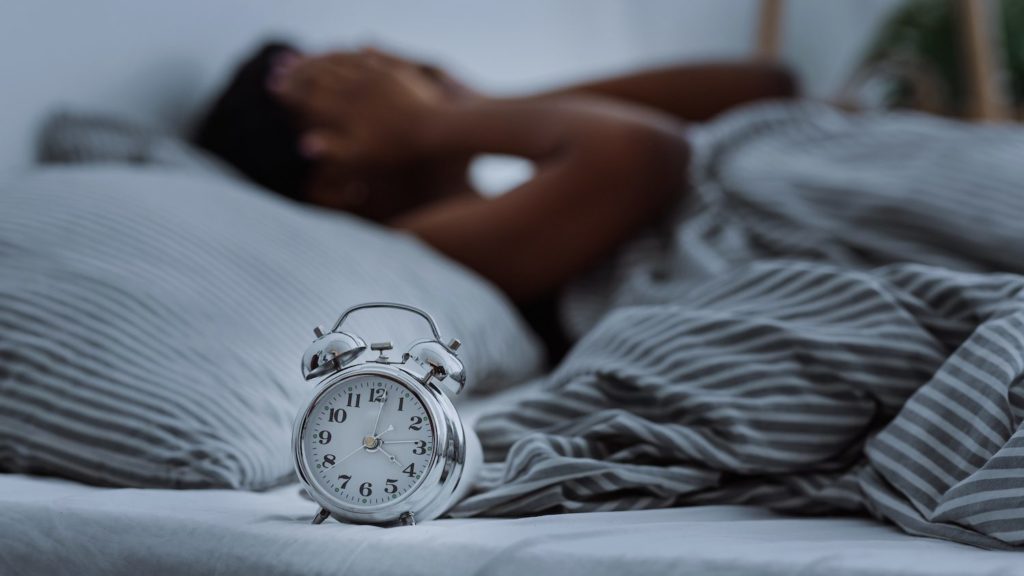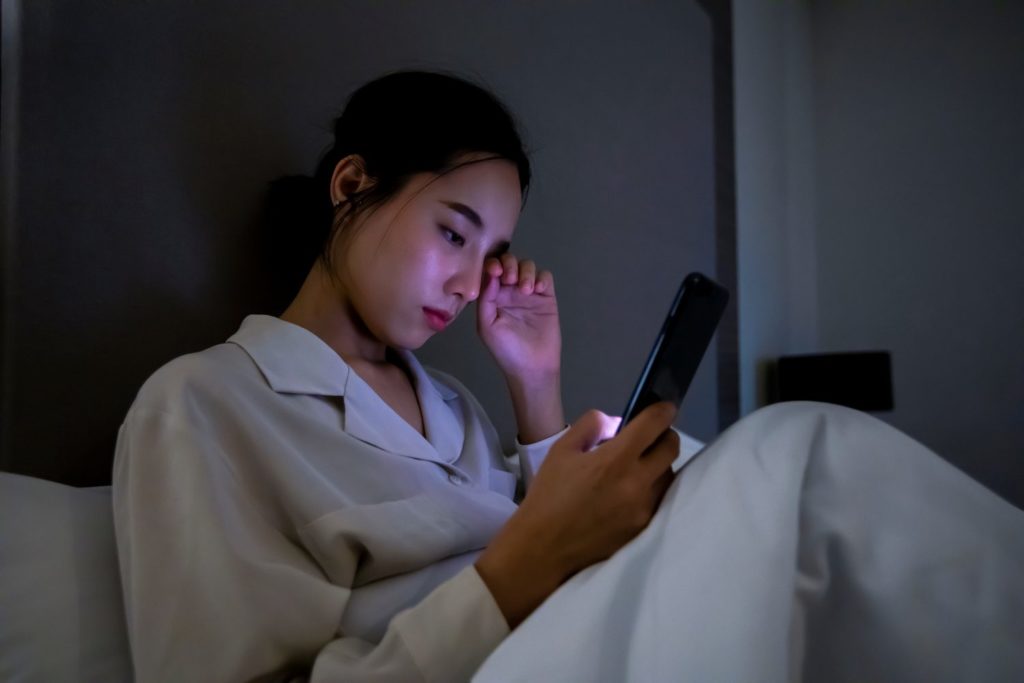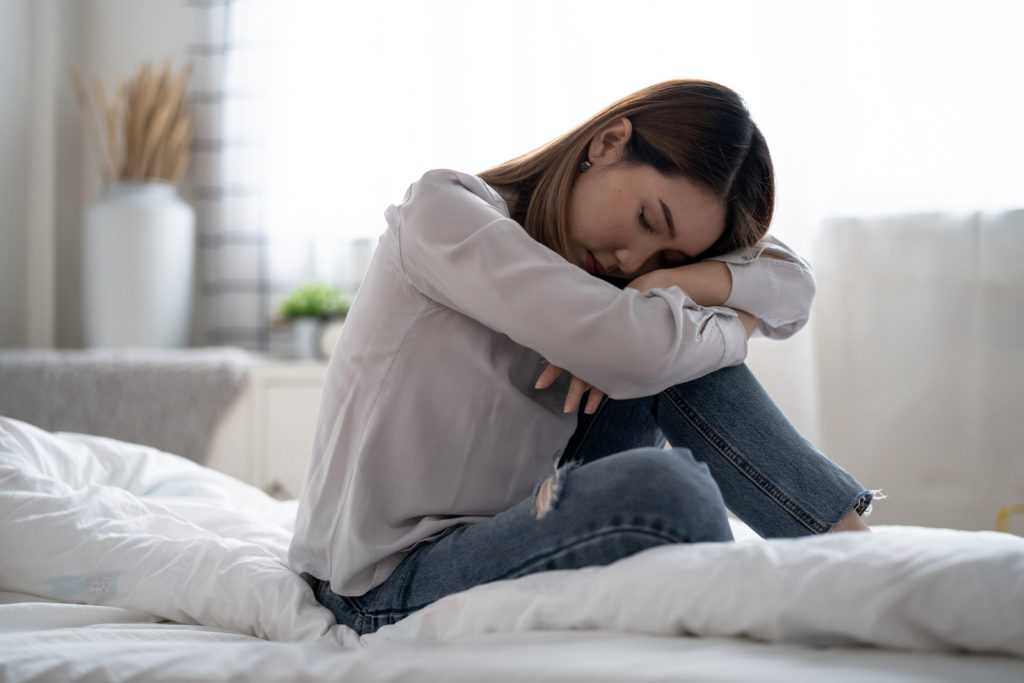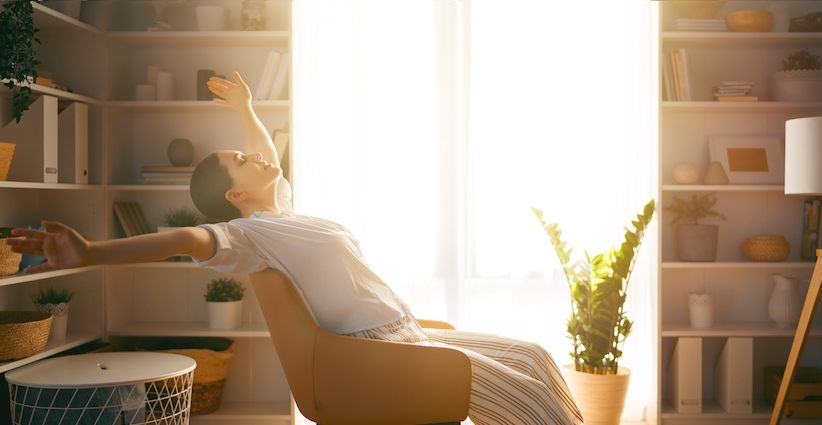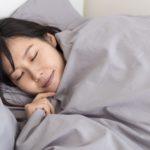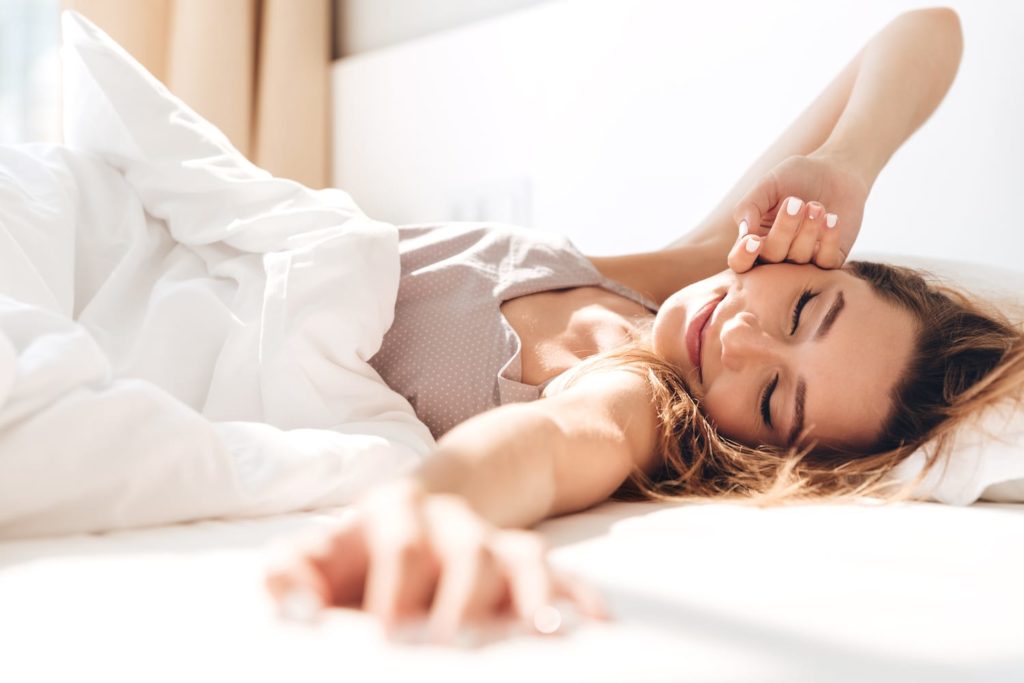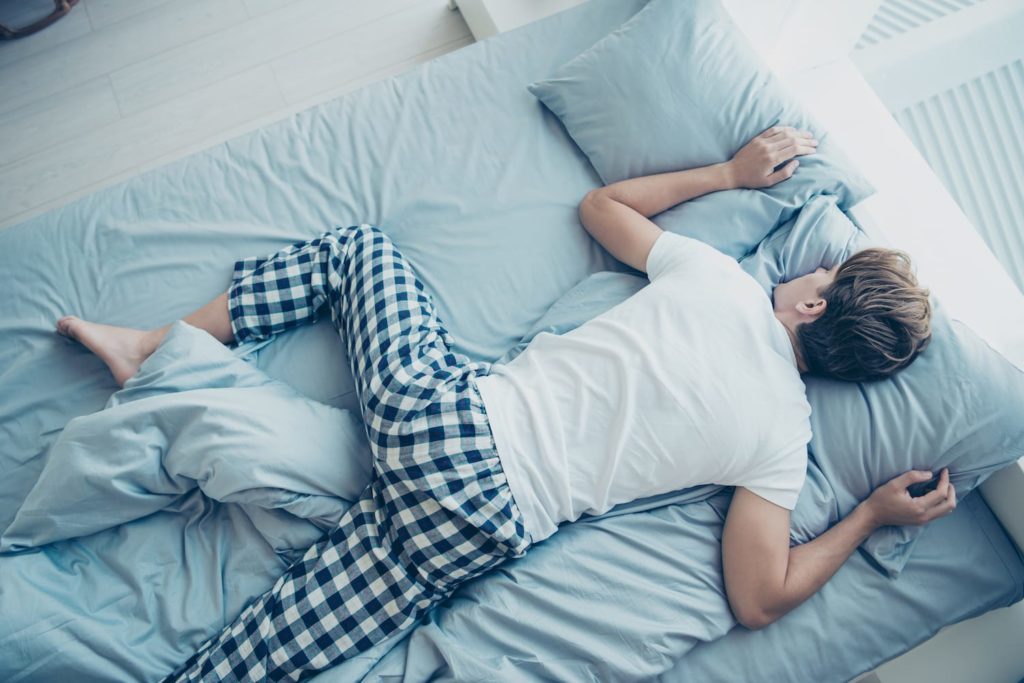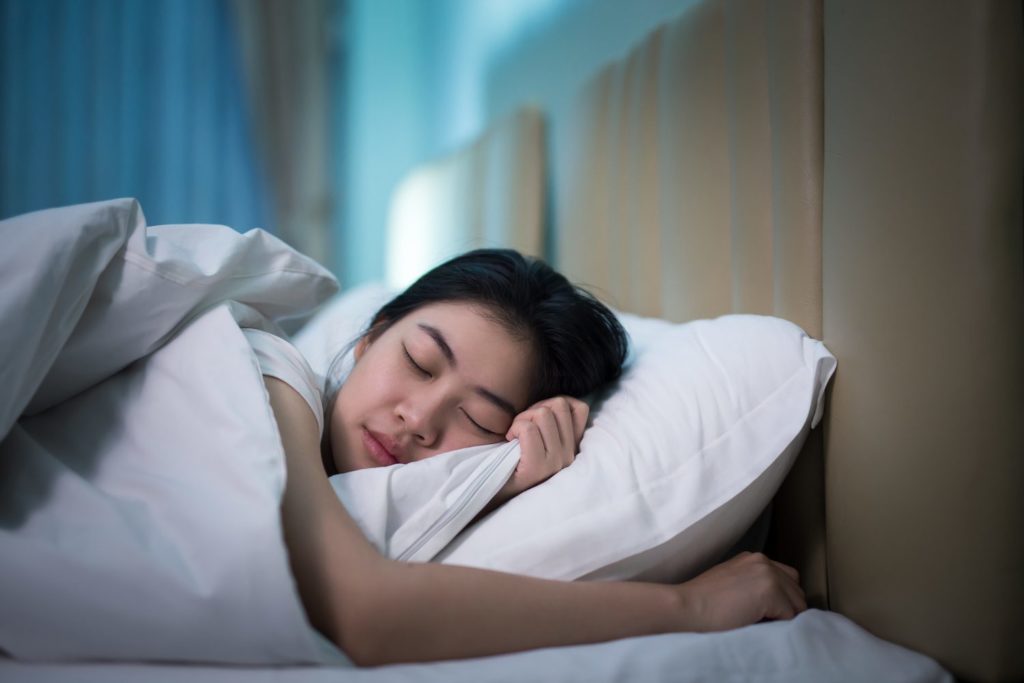Sleep Health
Take Charge of Your Sleep, Improve Your Health
Can’t Sleep?
For decades, researchers have explored how sleep works and why we need it. What we know for sure is that a good night of sleep is irreplaceable. Forming healthy habits are the first steps to consistent, restful nights.
Is waking up at the same time each night normal? Learn more about potential reasons you might wake up each night at the same time.
People wake up during the night for a variety of reasons. Learn why you might be waking up and how to fall back asleep.
Trying to find out why you have sleeping problems? Learn about the general causes of insomnia and how it can arise in the elderly, teens, and pregnant women.
Learn how to reset your circadian rhythms, including your sleep-wake schedule, through light exposure, exercise, strategic meal times, and more.
Sleep’s Role in Mental Health
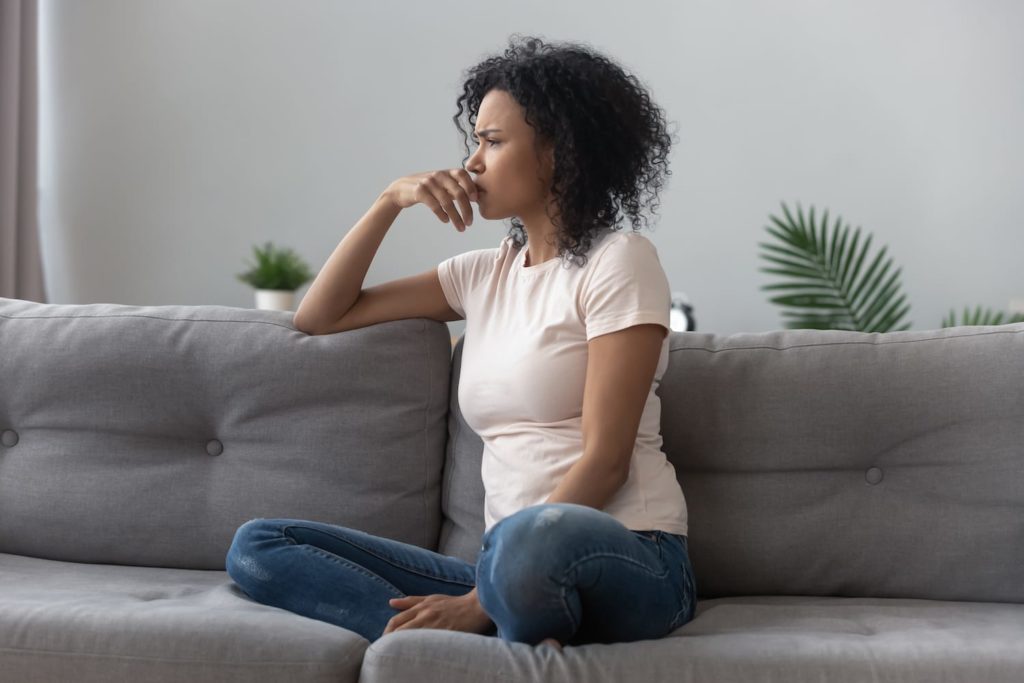
Updated April 23, 2024
Anxiety and SleepAnxiety is frequently connected to sleeping problems. Excess worry and fear make it harder to fall asleep and stay asleep through the night.
Anxiety at Night: Causes and Tips for Relief
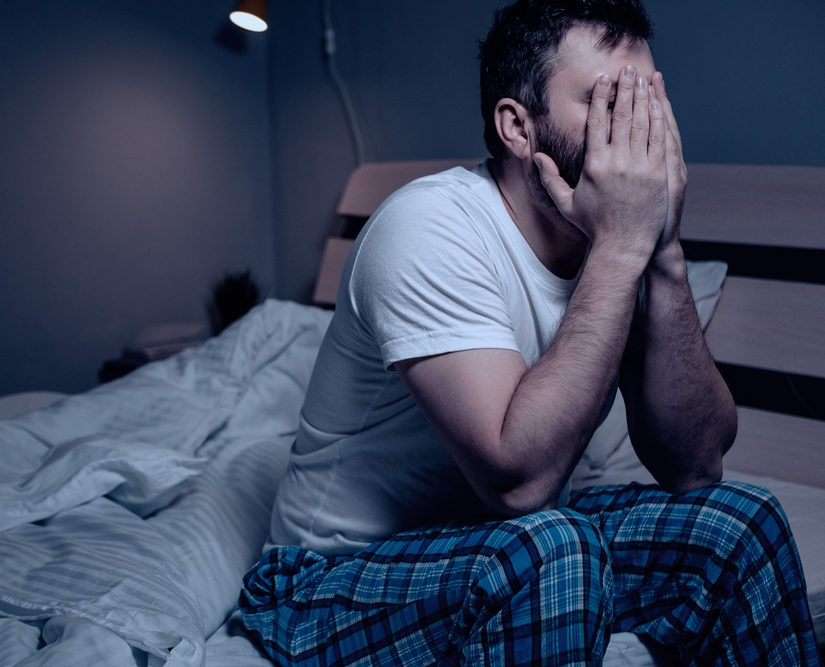
Updated April 23, 2024
Anxiety at Night: Causes and Tips for ReliefEveryone experiences anxiety on occasion. In fact, experts believe that anxiety is an important way for the body to stay alert, focused, and prepared to respond to a stressful situation. But anxiety can also be accompanied by racing thoughts and physical symptoms that may get worse at night and make it difficult to sleep. While anxiety is often a temporary experience, when it over time it can develop into an anxiety disorder. We delve into the causes of nighttime anxiety, how to calm anxiety at night, and when to talk to a doctor about persistent anxiety and sleep problems. What Causes Anxiety at Night? Whether it occurs at night or during the day, anxiety is caused by to a potential threat. Researchers have found a wide variety of factors that can trigger or increase a person’s anxiety. Lack of sleep: People who do not usually get the recommended amount of sleep have been found to experience , which can include stress and anxiety. Studies also show that when a person gets less sleep than they are accustomed to, they have . Life stressors: Stressful life events, like work troubles, illness, or the death of a family member, can cause a person to feel temporarily distressed and anxious. In some people, anxiety disorders may begin after a particularly . Traumatic experiences: People often feel anxious in the weeks after a , like a natural disaster, act of violence, or car crash. Childhood trauma can also make a person more likely to experience or as an adult. Genetics: Research has found that multiple genes may make a person more likely to develop an anxiety disorder. A person who is genetically predisposed to anxiety may develop a disorder after experiencing trauma or significant life stressors. Medication side effects: Certain medications can produce side effects that include anxiety. For example, starting or increasing the dosage of steroids, amphetamines, or antihistamines has been associated with anxiety and panic-like symptoms. Similarly, substances like caffeine and nicotine can trigger anxiety. Why Is Anxiety Worse at Night? Anxiety can get worse at night as people find themselves focusing more on their worries once they are lying in bed without the distractions of the day. For example, sometimes people with insomnia may begin to develop worries about whether or not they will be able to fall asleep. These worries may then exacerbate insomnia and make falling asleep even more difficult. Additionally, several other conditions can flare up at night, causing anxiety. For example, people with nightmare disorder often feel distressed after waking up from a nightmare. Post-traumatic stress disorder (PTSD) also involves nightmares and disrupted sleep. And nocturnal panic attacks can cause a person to wake up during the night feeling anxious and like something bad is about to happen. Symptoms of Anxiety at Night The symptoms and severity of anxiety vary widely. A person experiencing anxiety may notice symptoms at night such as: Worry or fear about the future Restlessness Headaches, stomachaches, or other pains Tense muscles, increased heart rate, or sweating Shortness of breath or chest discomfort Dizziness Trembling, chills or tingling sensations Flashbacks of a traumatic event or nightmares How Anxiety Impacts Sleep Anxiety and worry can interfere with a person’s ability to fall or stay asleep. One reason for these effects is that anxiety can trigger the body’s . This stress response sets off a throughout the body that can leave a person feeling too wound up or agitated to fall asleep. Additionally, anxiety can continue to affect the body after a person falls asleep and change how they move through the stages of sleep. For example, more anxious people have been found to in the rapid eye movement (REM) stage of sleep. Anxiety is also associated with less time spent in deep sleep, which is thought to be important for restoring the body and mind. How to Calm Anxiety at Night People who have anxiety at night can try multiple techniques to relieve stress and help reduce anxiety. Breathing exercises: Practicing slow, deep breathing may help people manage excessive worry and combat insomnia. Breathing exercises may promote sleep by reducing arousal in the nervous system and increasing relaxation. Progressive muscle relaxation: Learning to tense and relaxing muscles in the body one group at a time is another technique that promotes relaxation. This technique is commonly used to treat panic attacks, excessive worry, and insomnia. Breathing exercises and progressive muscle relaxation can also be used together. Writing: If a person’s nighttime anxiety stems from worrying about tasks they must complete in the future, research suggests that writing before bed may help. Specifically, people who write a detailed to-do list outlining tasks they need to complete have been found to fall asleep faster. Exercise: Engaging in regular exercise has been found to reduce anxiety, both in people who have anxiety disorders and those who do not. Physical activity may also help improve sleep in people with insomnia, particularly older adults. Therapy for anxiety: When anxiety begins to interfere with a person’s sleep or waking life, seeking professional treatment may help. Mental health professionals can offer support and a variety of tools for coping with anxiety. Therapy for insomnia: Cognitive behavioral therapy for insomnia (CBT-I) is a type of therapy that is usually the first treatment recommended for people with insomnia, including people whose insomnia is linked to anxiety at night. Support groups: Sometimes a support group is helpful when a person is dealing with anxiety. Support groups may be available in-person or online, and are sometimes overseen by a mental health professional. Talking to Your Doctor About Nighttime Anxiety Reach out to your doctor if you suspect that your nighttime anxiety is more than just occasional worry. Experts encourage people to bring up their mental health concerns with their , who can refer to a specialist if necessary and discuss medications and other treatment options. Be honest with your doctor about your symptoms, providing details about how long they have been happening and how severe they…
Mental Health and Sleep
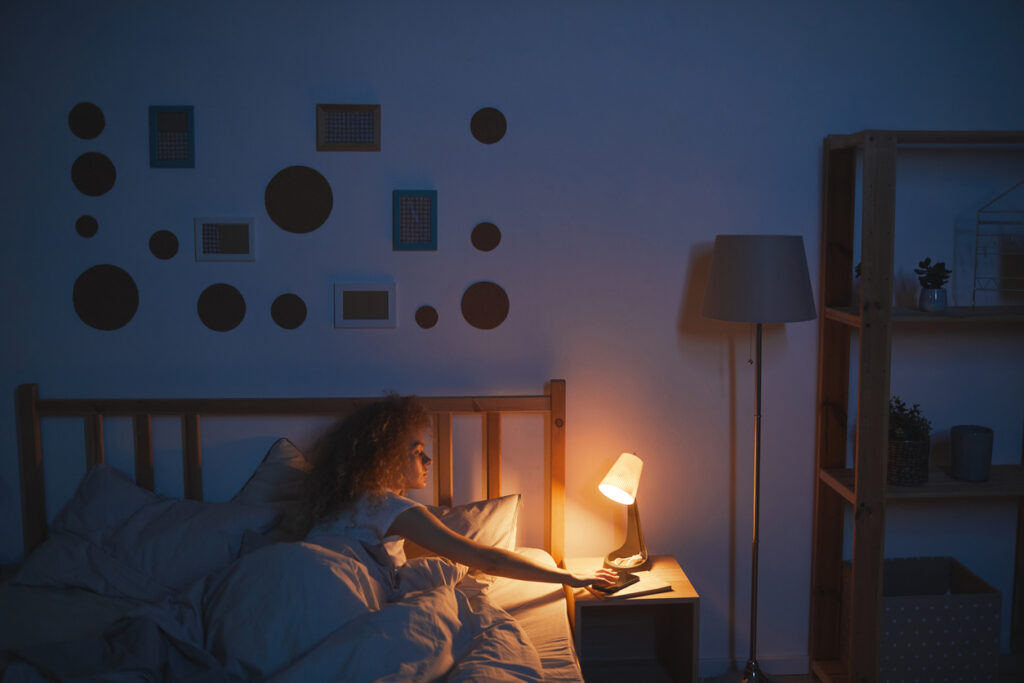
Updated March 26, 2024
Mental Health and SleepSleep and mental health are deeply intertwined. Learn about the complex relationship between sleep and mental health problems and how to improve both.
Featured Articles
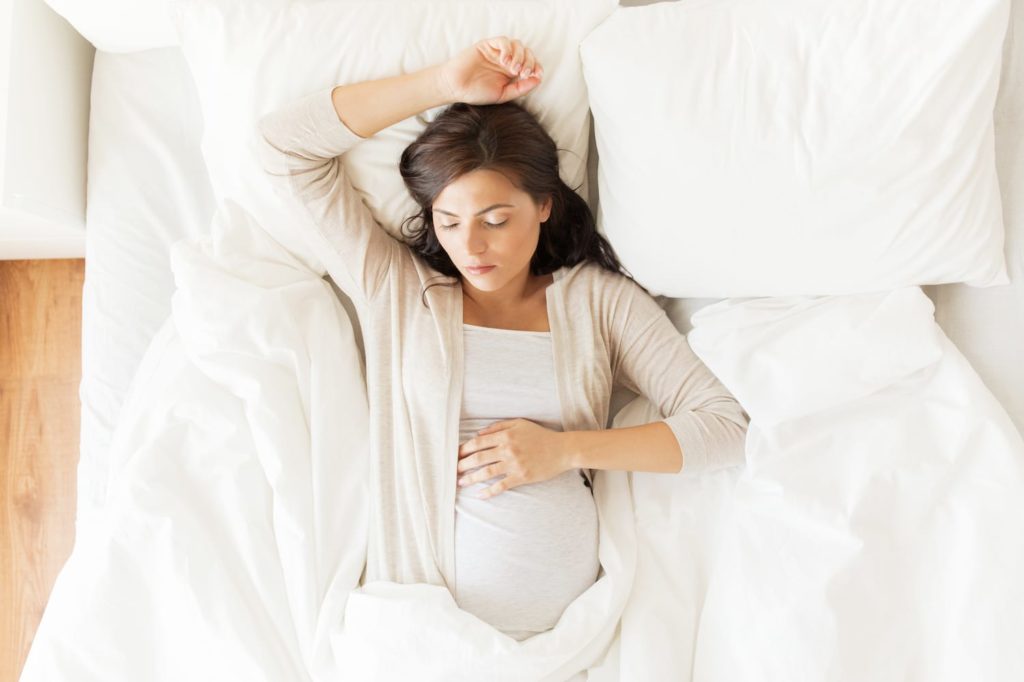
Updated March 27, 2024
How to Sleep Better While PregnantPregnant women have unique causes of sleep disruption. We cover tips for how to sleep better while pregnant.
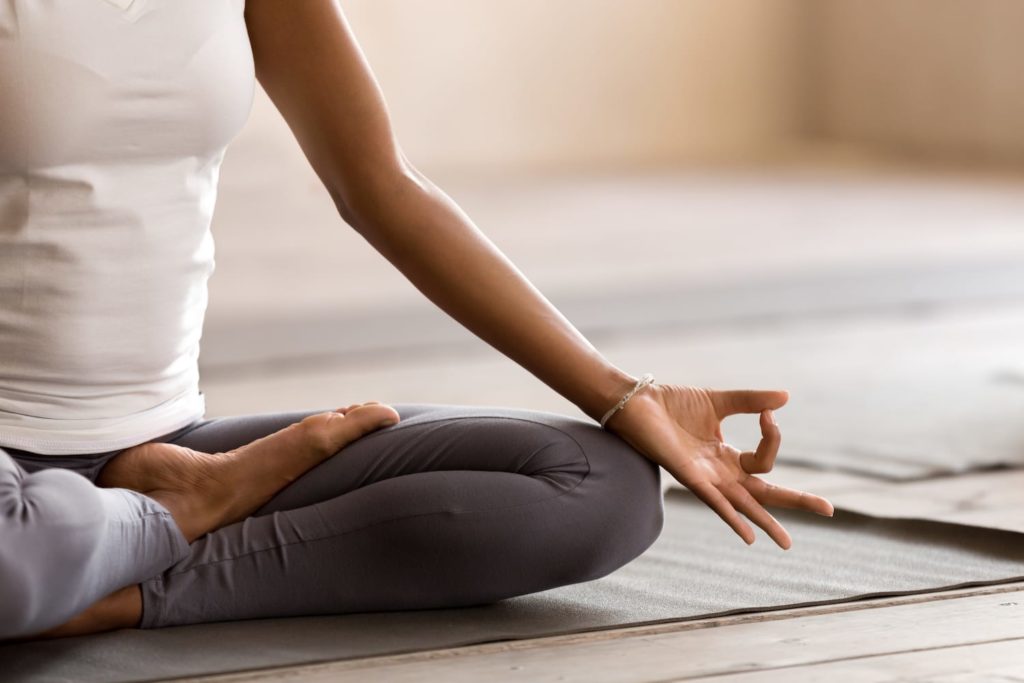
Updated February 27, 2024
Relaxation Exercises To Help Fall AsleepIf stress or anxiety is keeping you awake at night, try these gentle exercises to calm your body and mind.
Updated February 27, 2024
Updated February 26, 2024
Updated December 22, 2023
Updated December 8, 2023
The Link Between Fitness and Sleep

Updated December 22, 2023
Should I Nap Right After My Workout?Feeling sleepy after your workout? Learn about the links between naps, exercise, and sleep and consider the pros and cons of taking a nap after exercising.
Sleep, Athletic Performance, and Recovery
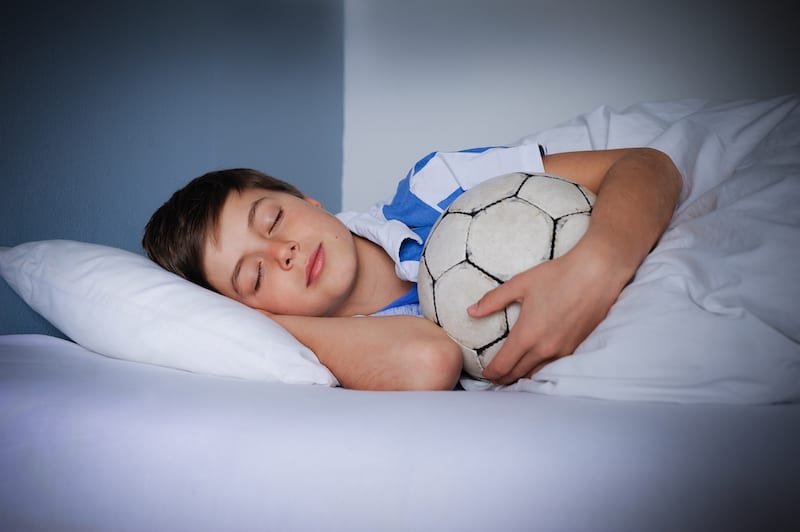
Updated December 13, 2023
Sleep, Athletic Performance, and RecoveryTime for recovery, rest, & sleep is an integral part of reaching peak athletic performance. Learn how sleep can help athletes in this guide.
Exercise and Sleep
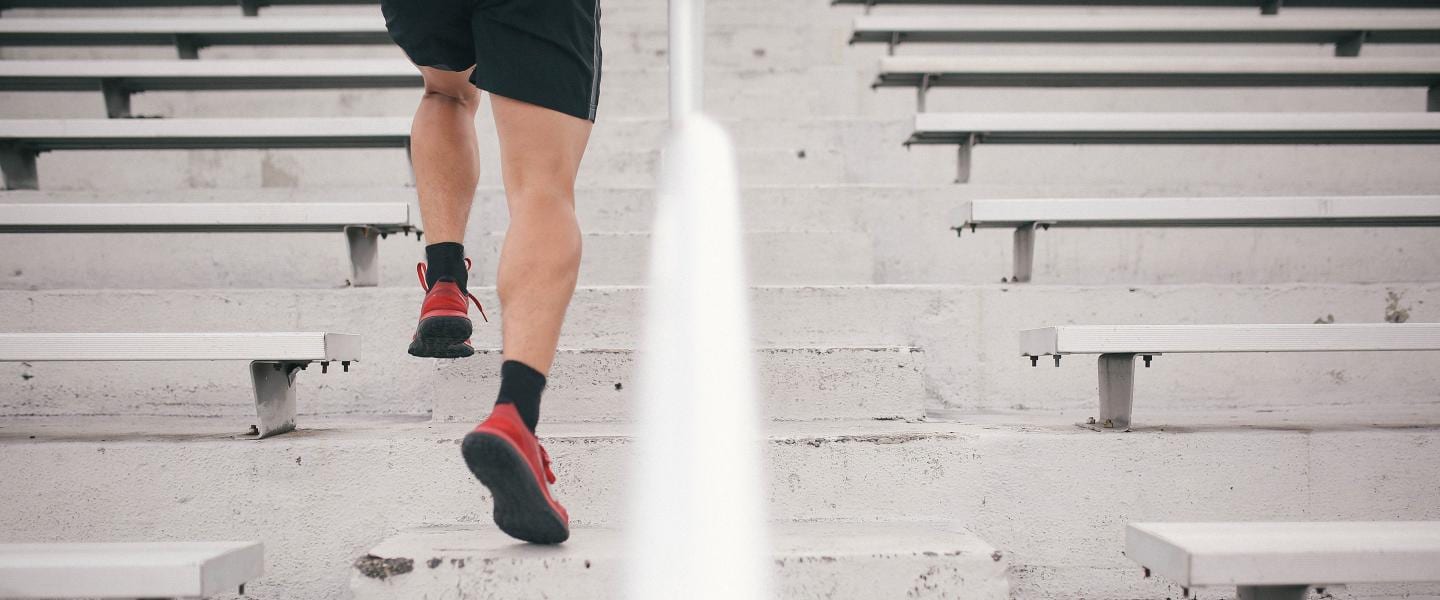
Updated October 11, 2023
Exercise and SleepSleep and exercise are closely intertwined. Learn how sleep can affect physical activity levels and vice versa.
Understanding Your Sleep
Sleep is deeply connected to our physical, emotional, and mental health. Yet many of us face disruptions to our sleep quality and quantity, increasing the risk of other medical problems. Prioritize identifying and treating sleep issues before they negatively affect your daily life.
Your sleep environment is crucial to getting quality rest. Learn how to take advantage of visual and practical design to create the ideal bedroom for sleep.
Proper sleep is an essential part of human functioning. Find out how much sleep you need, learn how to identify sleep problems, and get tips for better sleep.
Are you waking up in pain? It could be your sleep position. Learn about the pros and cons of different positions, and find the best sleeping position for you.
Deep sleep repairs muscles, strengthens the immune system, and leaves you refreshed in the morning. Learn how much deep sleep you need and how to get more.
